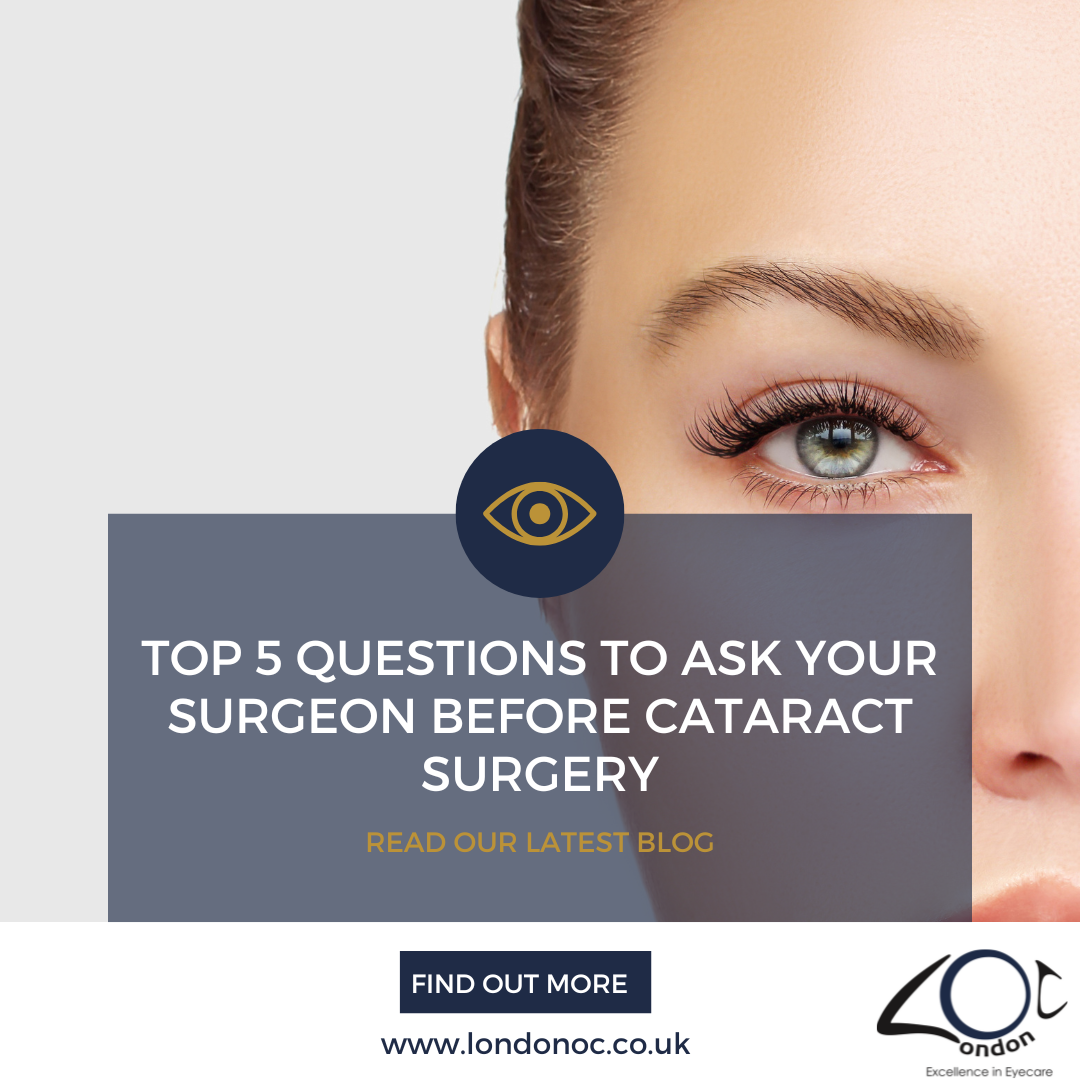Cataract surgery is a highly effective and routine procedure that can significantly improve your vision. However, it’s normal to have concerns and questions before undergoing any surgery. Preparing yourself by asking the right questions will help you feel informed and confident. Here are the top five questions you should discuss with your surgeon before proceeding with cataract surgery.
Am I a suitable candidate for cataract surgery?
Not everyone with cataracts requires immediate surgery. Cataracts develop gradually, and in the early stages, they may not significantly affect your vision or daily life. Speak with your surgeon to determine:
- How advanced your cataracts are.
- Whether surgery is the best course of action at this time.
- If waiting could impact your long-term vision or the success of the surgery.
Understanding whether now is the right time for surgery will help you make an informed decision.
What is my Intraocular Lens (IOL) options?
Cataract surgery involves replacing the cloudy natural lens with an artificial lens, known as an intraocular lens (IOL). Your surgeon will help you choose the most suitable IOL based on your vision goals and lifestyle. The main types of IOLs include:
- Monofocal IOLs: Provide clear vision at one distance (near or far).
- Multifocal IOLs: Offer vision at multiple distances, reducing dependence on glasses.
- Toric IOLs: Correct astigmatism while addressing cataracts.
Ask your surgeon to explain the benefits, limitations, and costs of each option to find the best fit for your needs.
What are the risks and complications of cataract surgery?
Although cataract surgery is considered safe, it’s important to understand the potential risks. These may include:
- Infection or swelling.
- Retinal detachment.
- Posterior capsule opacification (a condition that may require a follow-up procedure).
Ask your surgeon:
- What is the likelihood of complications?
- How are complications managed if they occur?
- What warning signs should I watch for during recovery?
Having this information can give you peace of mind and help you recognize when to seek medical attention if needed.
What can I expect before, during, and after the surgery?
Understanding the surgical process and recovery timeline can make the experience less stressful. Key questions to ask include:
- How long will the procedure take?
- Is the surgery performed on an outpatient basis?
- Will I need sedation or anesthesia, and what type will be used?
For recovery, clarify:
- When will I notice an improvement in my vision?
- Are there any restrictions on activities during the recovery period?
- How often will I need to return for follow-up visits?
This information will help you plan for the surgery and ensure a smooth recovery.
How experienced are you with cataract surgeries?
Your surgeon’s experience plays a critical role in the success of the procedure. Ask about their qualifications and track record, such as:
- How many cataract surgeries they’ve performed.
- Their success rates.
- Whether they specialize in the type of IOL you’re considering.
Choosing an experienced surgeon can enhance your confidence and improve your outcomes.
Conclusion
Cataract surgery is a safe and transformative procedure, but it’s important to be fully informed before proceeding. Asking these five questions will give you a clearer understanding of the process, risks, and benefits, allowing you to make the best decision for your vision. Don’t hesitate to raise additional concerns or seek clarification from your surgeon, being proactive ensures you’re prepared for a successful surgery and recovery.
Book in for your consultation here with Mr Vik Sharma, Consultant Ophthalmologist at LondonOC.
